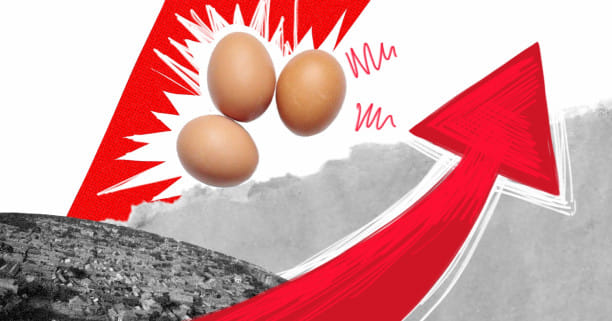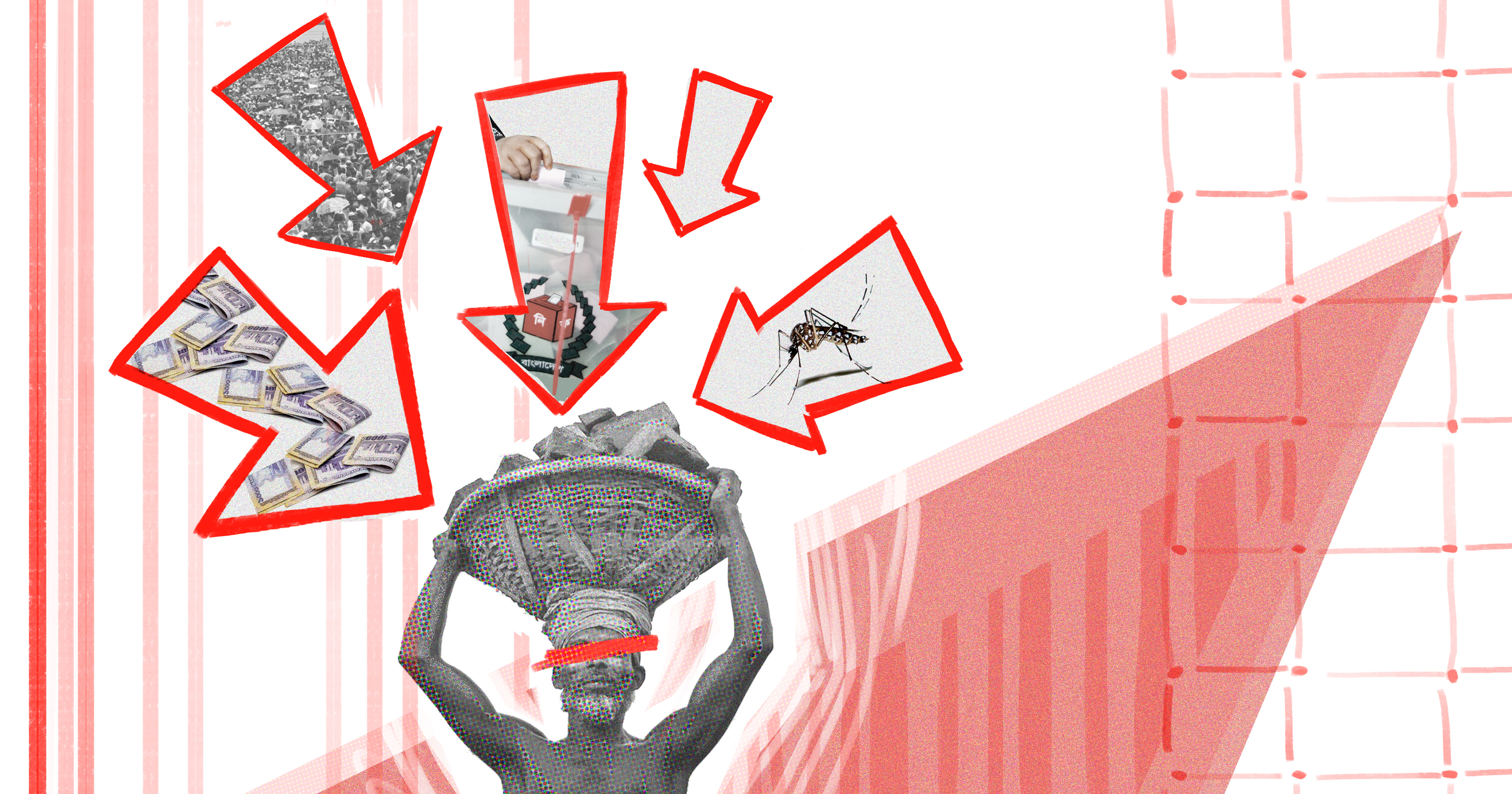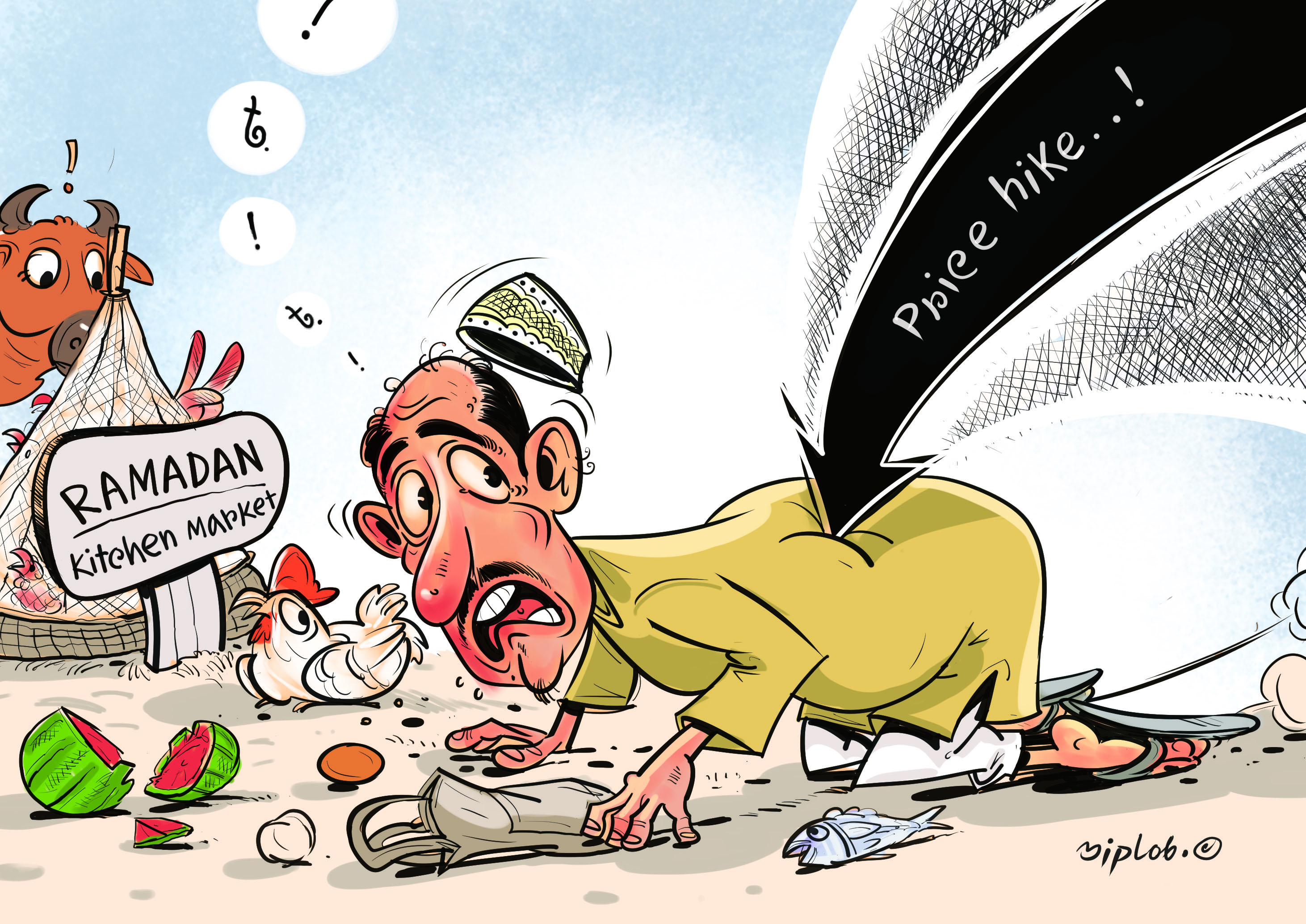While some buy citizenship, others can’t even afford eggs

Have you been to the kitchen markets lately? If so, and if you are a middle-class or a lower-middle-class citizen of this country, you must have noticed the astounding prices of necessary commodities. The price of everything is going up by so much that ordinary people can no longer afford them. The much-discussed recent International Republican Institute (IRI) poll has shown that, above many concerns, Bangladeshis are mostly worried about the alarming rise in the prices of daily necessities. And this is a large chunk of Bangladesh. On the other side, though, are the looters and money launderers, one of whom was recently exposed in an investigative report of this daily. These people are syphoning millions of taka abroad with impunity, and buying lavish real estate properties and even citizenships in foreign countries.
This is not a singular incident by a lone actor, but is representative of a number of businesspeople who are using their proximity to those in power to amass huge amounts of wealth, and then laundering that abroad. This practice is not an exception to the rule; it seems to be the rule. In short, if you want to amass a lot of money, it is not ingenuity or innovation that will help you to the top, but joining the unholy nexus between the state and unscrupulous businesses.
But we must also view this from the perspective of the average daily shopper. They are aware of what is happening. They follow the news and are on social media. Many leave a frustrated comment or share a relatable post. Others silently observe the situation, not expressing their opinion for fear of repercussions. But that, of course, does not stop them from forming an opinion. They witness their deprivation and find themselves trapped within the constraints of the "system." Are these citizens really so pessimistic to think that nothing will ever change as they wish for it to?
The aforementioned IRI poll also revealed that the acceptability of the opposition in Bangladesh has increased recently. It is true that many do not believe that the opposition has anything new to offer. Nevertheless, the political pendulum swings and it may be that an aversion for the incumbent is in effect. At least, as far as the market prices are concerned, people want a respite. And as far as the looters are concerned, people want to see them be brought to book. If the opposition can strongly vow to deliver on that, it is possible that their acceptability would rise even higher than what the IRI poll has shown.
We must ask how it is that regular people are not able to buy chicken or a dozen eggs while the super-rich are allowed to practically loot the country.
Then again, let's try to understand the issue of price hikes at a personal level. How can this not anger the average citizen? Have we, as a population, become so jaded that manipulation of this level does not move us into action? What lies behind the apparent inaction of the middle class and the lower income groups in the face of this massive jump in prices? Social movement theory suggests that when there is such a level of strain and deprivation in a society, the people would be compelled to act. However, the strain and deprivation have to be "perceived." If it is treated as being part of business as usual, and the people start to believe that no other alternative is available, then their inaction is understandable. Is that what is happening in Bangladesh?
One may interject that the lower classes are acting by joining the protests and demonstrations of the opposition party. If this is true, then the fuel for a social movement – demanding a curbing of corruption and the lowering of the prices of necessities – is being exhausted for the political activism of the opposition. The opposition, however, has largely failed to make the two major causes of people's concern the centrepiece of their activism. Leaders of the opposition have sparingly commented on this, but their activism remains focused on the instalment of a caretaker government that may increase their chances of getting to power. If the opposition does not pivot to a more people-centric approach, the zeal of their movement may be lost as the people will not be able to connect with them.
The questions that are difficult to ask must be raised. We must ask how it is that regular people are not able to buy chicken or a dozen eggs while the super-rich are allowed to practically loot the country. We must demand answers from the administration about its inability to prevent these – the inflation and the money laundering – from taking place. The share market manipulation, the looting of the banks, and the manipulation of the private sector must all be accounted for. When we hit a financial crisis, the super-rich will flee to the countries in which they have investments or in which they have bought citizenship. But it will be the general people who will have to keep suffering. This must change.
Anupam Debashis Roy is a contributor to The Daily Star.




 For all latest news, follow The Daily Star's Google News channel.
For all latest news, follow The Daily Star's Google News channel. 


Comments